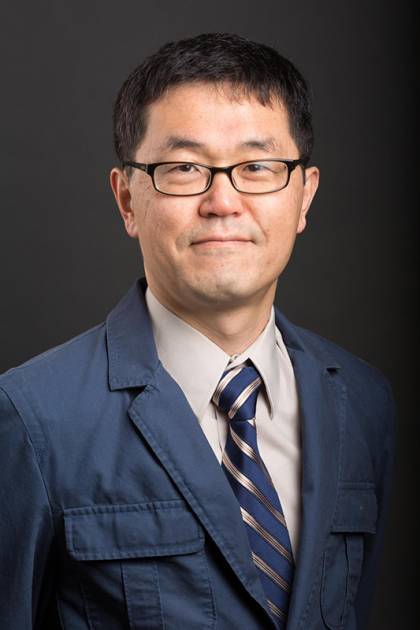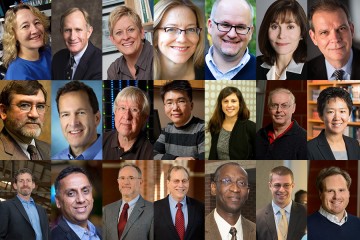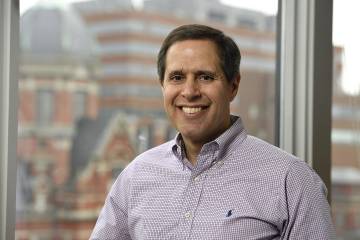Daeyeol Lee began his higher education in South Korea by studying economics. Some 20 years later, he was known as one of the world's leading neuroscientists.

Image caption: Daeyeol Lee
Image credit: Courtesy of Daeyeol Lee
Throughout his career, Lee has found ways to blend principles of both disciplines—and others—to investigate the brain's ability to make decisions.
"In economics, you study decision-making with mathematical models. That's with the assumption that humans are perfectly rational and make decisions with perfect knowledge, and that just didn't feel right to me," Lee says. "I was intrigued by the discrepancy, and that got me interested in how the brain works."
In fact, Lee is widely considered the father of a niche field called neuroeconomics that's blossomed in the past 15 years. It integrates not only the two disciplines it's named for but also borrows tools from artificial intelligence, psychology, and other areas.
"If you're trying to understand the complex function of the brain, it's impossible to get there using just one technique," he says. "From the birth of neuroeconomics, one goal was to try to unify different methodologies and theories of various disciplines that strive to predict human behavior."
After 12 years at Yale University, Lee will join Johns Hopkins University this summer as a Bloomberg Distinguished Professor. He'll be working primarily within the Krieger Mind/Brain Institute and will also teach neuroscience courses at the School of Medicine and the Krieger School of Arts and Sciences.
"Dr. Lee is a true interdisciplinary scholar, known in particular for his creative and outstanding contributions to the field of neuroscience," says Sunil Kumar, JHU provost and senior vice president for academic affairs. "We're excited to have him leading Johns Hopkins in new directions as a Bloomberg Distinguished Professor."
Born and raised near Seoul, South Korea, Lee received his bachelor's degree in economics at Seoul National University before he switched to the sciences and relocated to the U.S. in 1989. He received his master's in biology and his doctorate in neuroscience from the University of Illinois at Urbana-Champaign. He held faculty positions at Wake Forest University and the University of Rochester before joining Yale in 2006.
In addition to heading the Lee Lab at Yale, Lee held the title of Dorys McConnell Duberg Professor of Neuroscience and taught in the neuroscience and psychology departments.
In the world of neuroscience, Lee is known for his groundbreaking experiments investigating the neural mechanisms that underlie decision-making, focusing on two areas of the brain: the prefrontal cortex and the basal ganglia. In much of his research, he has used microelectrodes to measure the activity of individual neurons in subjects as they attempt to solve complex cognitive problems.
One well-known series of studies used competitive games, including rock-paper-scissors, to identify the building blocks of neural signals for strategic decision-making and optimal learning. Some of these studies even revealed the neural basis for so-called counterfactual outcomes, which are closely related to emotions like regret.
Another line of Lee's research has elucidated how the brain evaluates the value of rewards—showing, for example, the neural basis for the phenomenon of delayed gratification.
Lee also served as an editor for the Journal of Neuroscience for six years and is currently a reviewing editor for the journal eLife. He has reached beyond academic audiences with TED Talks and his popular science book, The Birth of Intelligence, which was released in Korea in 2017 and will be published in English later this year by Oxford University Press.
Lee considers the move to Johns Hopkins a kind of indirect homecoming, he says, since his two most indelible mentors in neuroscience—Joseph Malpeli and Apostolos Georgopoulos—were trained here by Vernon Mountcastle, who died in 2015. Mountcastle, a Hopkins faculty member for nearly 65 years, was universally acknowledged as the father of neuroscience.
"Daeyeol's work perfectly exemplifies the kind of rigorous, computationally informed systems neuroscience we have always stressed at Hopkins—he embodies the scientific legacy established by Mountcastle," says Ed Connor, director of the Krieger Mind/Brain Institute, where Lee's lab will be housed.
Lee says he was drawn by Hopkins' international reputation in systems neuroscience and the chance to work with new colleagues and resources. In particular, he hopes to explore new dimensions of machine learning and artificial intelligence, and to make use of cutting-edge technologies that monitor large numbers of neurons simultaneously.
"Dr. Lee is a groundbreaking researcher whose work transcends disciplines," says Beverly Wendland, dean of the Krieger School. "His research will spark collaborations that will have broad impact across neuroscience, economics, the Mind/Brain Institute, and psychological and brain sciences. In fact, his broad-ranging interests mean he is also a likely contributor to our new Stavros Niarchos Foundation Agora Institute."
Lee is the 41st Bloomberg Distinguished Professor at Johns Hopkins, taking his place among an interdisciplinary cohort of scholars working to address major world problems and teach the next generation. The program is backed by a $350 million gift from Michael R. Bloomberg, a Johns Hopkins alumnus, founder of Bloomberg LP and Bloomberg Philanthropies, World Health Organization Global Ambassador for Noncommunicable Diseases, UN Secretary-General's Special Envoy for Climate Action, and former New York City mayor.
Posted in Science+Technology, University News
Tagged neuroscience, bloomberg distinguished professorships, daeyeol lee









